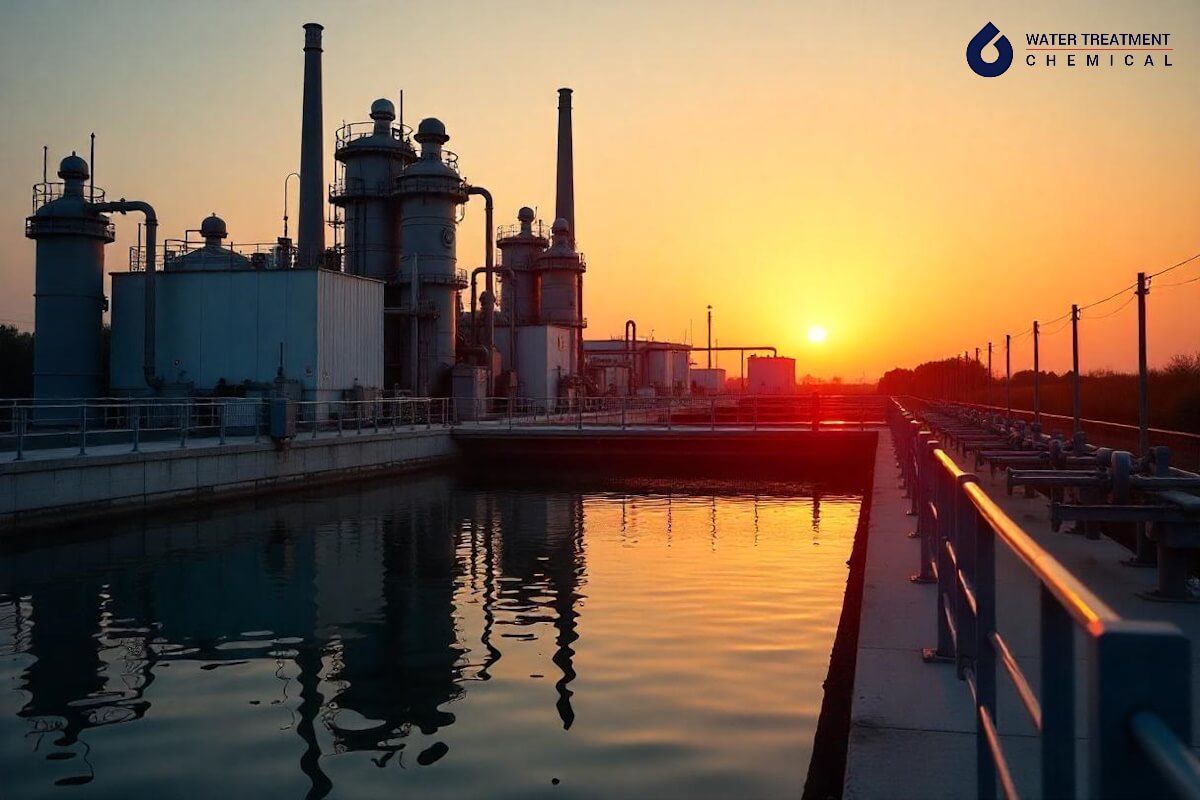Boilers are the backbone of countless industrial operations. From power generation to food processing, these systems deliver the heat and steam needed to keep production running. But there’s more to keeping a boiler healthy than regular maintenance. The unseen factor? Boiler chemicals.
These treatments are critical for preventing problems like scaling, corrosion, and sludge buildup—issues that can lead to costly downtime or even catastrophic failures. If you’re managing an industrial facility, understanding how these chemicals work can give you the edge in keeping systems efficient and reliable.
Why Boiler Chemicals Are Non-Negotiable in Industrial Settings
Water might look clean to the naked eye, but it often carries dissolved minerals, oxygen, and impurities that wreak havoc in a boiler system. Left untreated, this water can cause a cascade of problems.
- Scaling: Minerals like calcium and magnesium form deposits on heat transfer surfaces. Even a thin layer of scale acts like insulation, reducing heat transfer efficiency and forcing the system to use more energy.
- Corrosion: Dissolved oxygen and carbon dioxide in water are corrosive to steel. Over time, they eat away at pipes, tubes, and tanks, causing leaks and weakening structural integrity.
- Sludge formation: Suspended solids settle in low-flow areas of the boiler, creating sludge that reduces water circulation and heat transfer.
Boiler chemicals are formulated to address these threats head-on. By conditioning the water and protecting system components, they keep boilers running at peak performance and extend equipment lifespan.
Need reliable solutions for your boiler system? Talk to our experts today.
Common Types of Boiler Chemicals Used in Industrial Plants
Boiler treatment programs aren’t one-size-fits-all. They are tailored to the specific requirements of the plant and the type of boiler in use. Here are the key categories:
1. Oxygen Scavengers
Oxygen is one of the main culprits behind corrosion. Oxygen scavengers like sodium sulfite, DEHA, or hydrazine react with dissolved oxygen in the feedwater and remove it before it can damage metal surfaces.
2. Scale Inhibitors
These chemicals prevent hardness salts like calcium and magnesium from depositing as scale. Phosphate-based compounds and polymer dispersants are commonly used to keep minerals in suspension so they can be removed during blowdown.
3. Alkalinity Builders
The right pH level is crucial to minimize corrosion and scale formation. Alkalinity builders such as sodium hydroxide are used to adjust the pH of the boiler water and maintain the proper chemical balance.
4. Condensate Line Treatments
After steam does its job and condenses back into water, it can pick up carbon dioxide and become acidic. Neutralizing amines or filming amines are injected to protect condensate return lines from acid attack.
5. Sludge Conditioners
Sludge conditioners prevent suspended solids from settling and forming deposits. They help maintain clean boiler surfaces and improve heat transfer.
What Happens Without Proper Boiler Chemical Treatment?
Ignoring or underdosing boiler chemicals can set off a chain reaction of problems:
- Energy losses: Scale as thin as 1/16 inch can increase fuel consumption by up to 15%.
- Corrosion damage: Pitting and thinning of metal surfaces weaken equipment and increase the risk of leaks or failures.
- Unplanned downtime: Tube failures or clogging can force shutdowns, leading to production losses.
- Shorter equipment life: Repairs and replacements come at a steep cost when the system isn’t protected.
Regular water testing and chemical adjustments are the only ways to stay ahead of these risks.
Get the right chemical treatment for your plant.
Balancing Efficiency and Environmental Responsibility
Many modern plants are also concerned about the environmental impact of their operations. Today’s boiler chemicals are designed to be safer for workers and minimize environmental harm. Switching to environmentally friendly formulations where possible helps facilities stay compliant with regulations while protecting their systems.
Boiler Water Treatment: A Critical Piece of the Puzzle
Boiler water treatment isn’t just about adding chemicals—it’s about creating a comprehensive program. This includes:
- Water testing and analysis to determine feedwater quality.
- Choosing the right chemical blend based on boiler pressure, design, and water chemistry.
- Monitoring and control systems to maintain proper dosing levels.
- Regular system inspections to catch early signs of scaling or corrosion.
A reliable chemical treatment program ensures that your investment in boilers pays off for years to come.
How to Choose the Right Boiler Chemicals for Your Plant
Selecting boiler chemicals isn’t as simple as picking products off a shelf. Consider these steps:
- Test your water source: Know the hardness, alkalinity, and dissolved oxygen levels.
- Understand your system: High-pressure and low-pressure boilers have very different treatment needs.
- Work with experts: Partnering with a supplier who understands industrial systems ensures you get the right products and technical support.
The right boiler chemicals combined with good operational practices can prevent 90% of common boiler problems.
Don’t Let Boiler Problems Slow You Down
Boiler chemicals might seem like a small detail in a large operation, but they play a huge role in keeping your plant productive. Skipping them or choosing the wrong ones is a gamble you can’t afford to take.
If your plant relies on steam or hot water, make sure you’re investing in the right chemical treatment program. It’s one of the simplest ways to improve efficiency, cut costs, and avoid unexpected breakdowns.
Looking for expert boiler chemical solutions?

